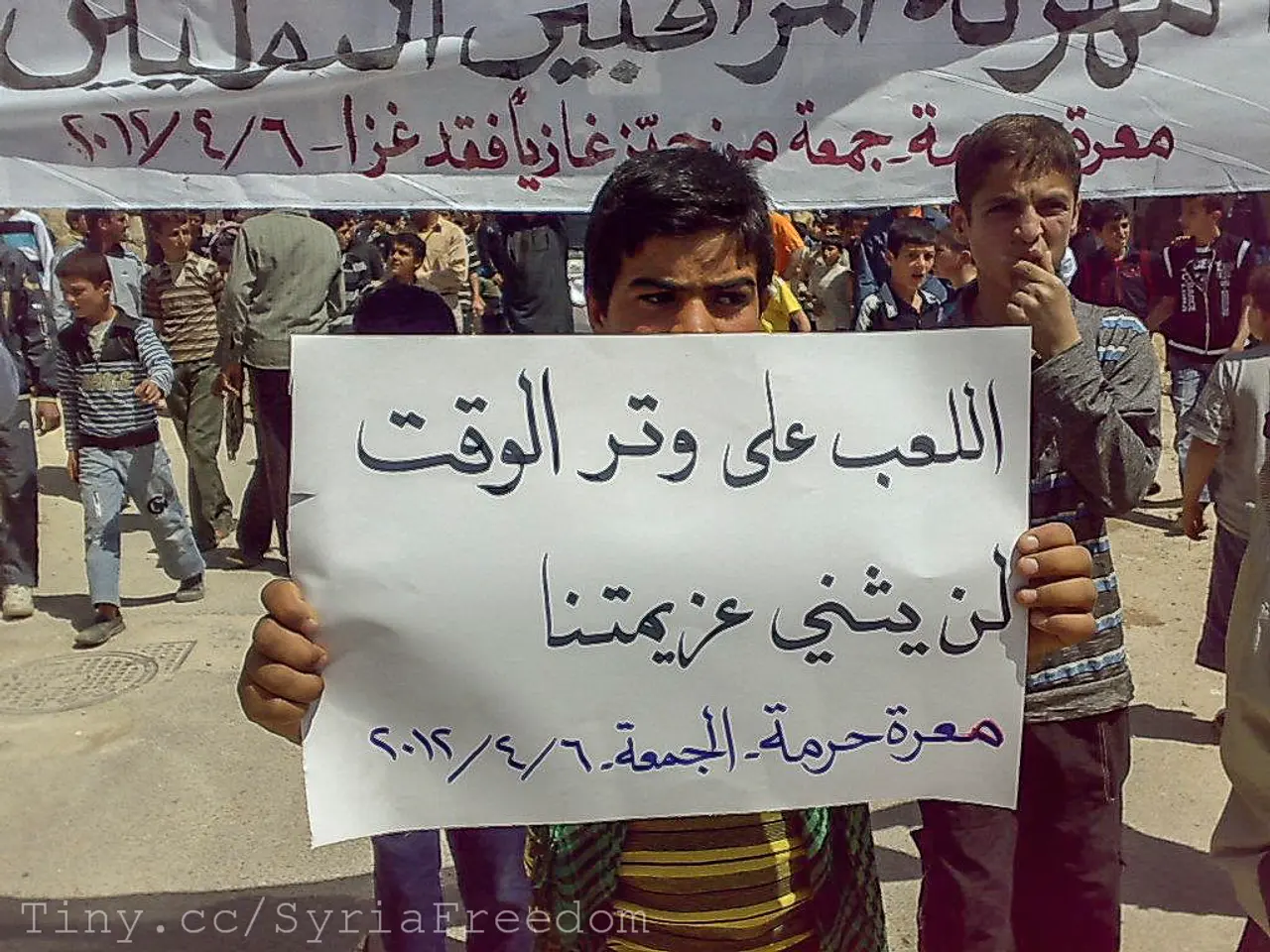Preparations underway for a fresh conflict in Israel
In a move that has sparked international controversy, Israeli Prime Minister Benjamin Netanyahu has proposed a plan for a complete military takeover of Gaza City and expanding Israeli control over the Gaza Strip.
The plan, approved by Israel's Security Cabinet, consists of five principles aimed at ending the ongoing conflict: disarming Hamas, returning all hostages, demilitarizing Gaza, establishing Israeli security control, and creating an alternative civil administration independent of Hamas or the Palestinian Authority.
However, the plan has faced significant opposition and criticism, both domestically and internationally. The United Nations human rights chief, Volker Türk, has called for the plan to be "immediately halted," warning it would cause massive forced displacement, killings, suffering, destruction, and potential atrocity crimes.
The U.K. Prime Minister Keir Starmer has labeled the plan as "wrong," arguing that it will not resolve the conflict or secure hostages' release but only lead to more bloodshed.
Hamas has strongly condemned the decision as a "new war crime," warning that the plan will have a high cost and will not be an easy endeavor. Hamas remains committed to seeking a comprehensive agreement, including the release of prisoners and war cessation.
In a bid to mitigate civilian suffering amid ongoing operations, Netanyahu’s office has stated that humanitarian assistance will be distributed to civilians outside combat zones.
Meanwhile, the United Nations Security Council is holding a session on Tuesday dedicated to the issue of Israeli hostages in Gaza. The session aims to discuss ways to find a peaceful resolution to the conflict.
On a separate note, the Israeli army is predicted to be ordered to conquer the entire Gaza Strip, according to media outlets. However, this has not been officially confirmed by the Israeli government.
Israeli Prime Minister Benjamin Netanyahu is scheduled to convene his security cabinet on Tuesday. It remains to be seen whether the plan will move forward or if a new approach will be considered.
Hamas, on the other hand, is in contact with mediators but has not received new proposals or ideas for resuming negotiations. Hamas political leader Hossam Badran expressed a willingness to stop the war and end the famine in Gaza, indicating a potential opening for negotiations.
Gideon Saar, the Minister of Foreign Affairs, has commented that the Chief of Staff must express his professional position clearly to political leaders. Lieutenant-General Eyal Zamir, the Chief of Staff of the army, may have reservations about the proposed project, according to unconfirmed reports.
The reopening of goods in Gaza, including basic food products, baby food, fruits and vegetables, and hygiene items, is subject to rigorous security control aimed at preventing Hamas involvement. This controlled and progressive reopening was initiated by COGAT, an organization of the Ministry of Defense.
The daily Ma'ariv states that the Israeli government is aiming for the total conquest of the Gaza Strip. However, the situation remains fluid, and the outcome of the security cabinet meeting is yet to be determined.
[1] Source: Various news outlets, including the Jerusalem Post, Haaretz, and the New York Times.
- The proposed military takeover of Gaza City and expansion of Israeli control, a move initiated by Israeli Prime Minister Benjamin Netanyahu amid the ongoing conflict in Gaza, is unsurprisingly causing a stir in the realm of general news, politics, and international relations, particularly in discussions regarding war-and-conflicts and crime-and-justice.
- As the Israeli Security Council debates Netanyahu's plan, political leaders, including Keir Starmer from the U.K., have weighed in, expressing concerns about potential human rights violations, mass displacement, and increased violence. Meanwhile, Hamas' political leader Hossam Badran argues for a comprehensive agreement to end the war and the famine in Gaza, which could signal a promising avenue for negotiations in the field of politics.






